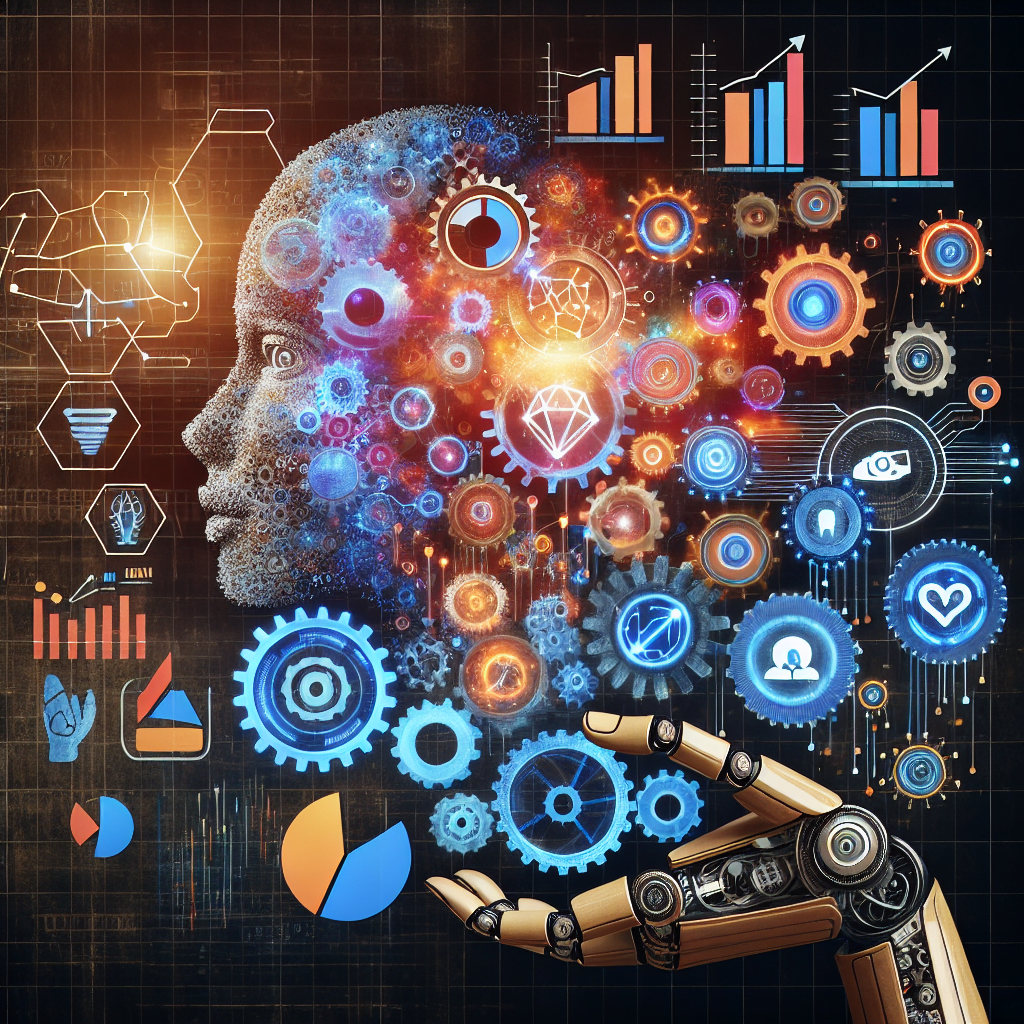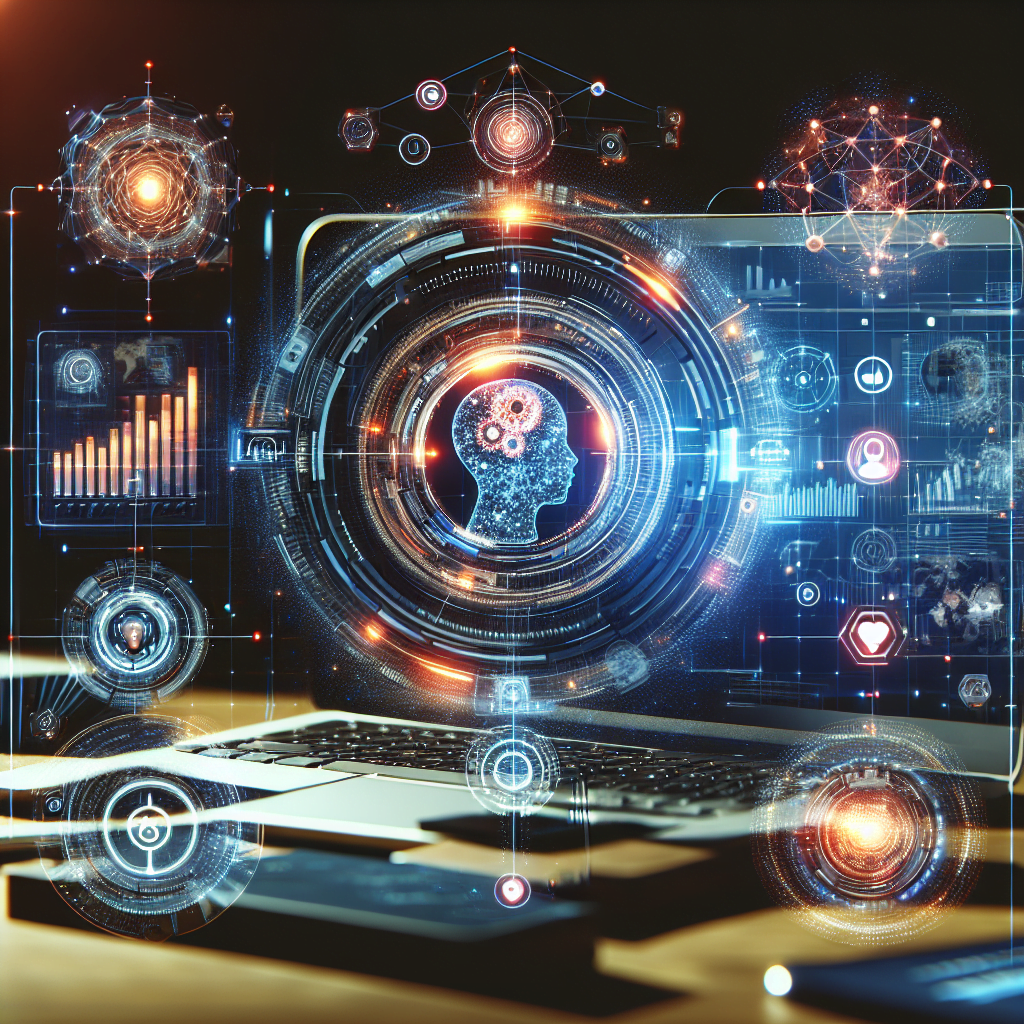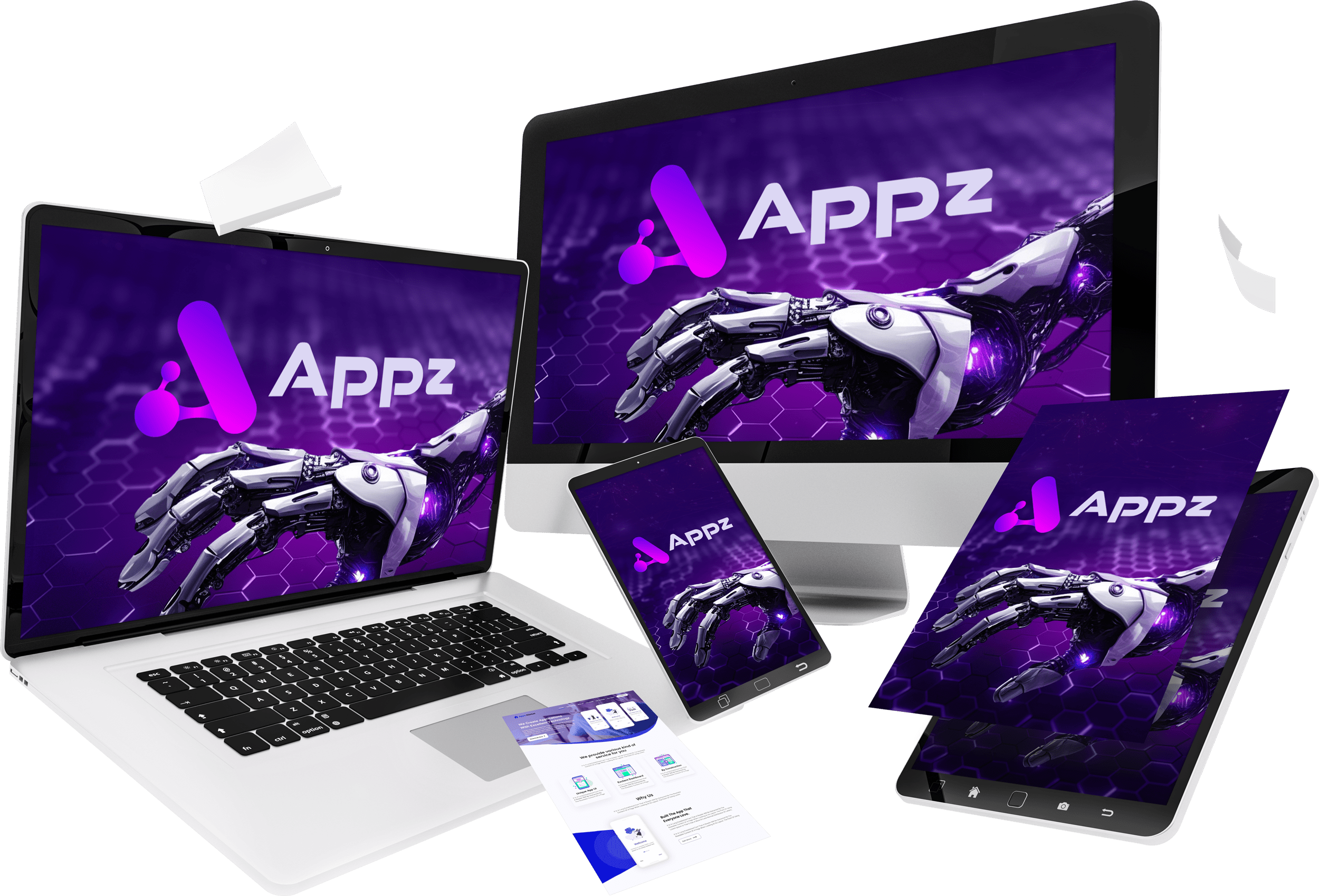Imagine a world where marketing becomes more efficient, personalized, and intuitive. The future of marketing is here, and it is powered by Artificial Intelligence (AI). With AI-driven strategies, businesses can gain deeper insights into customer behavior, create highly targeted campaigns, and deliver personalized experiences like never before. This game-changing technology has the potential to revolutionize the way businesses connect with their audience, providing them with a competitive edge in a rapidly evolving digital landscape. In this article, we will explore the exciting possibilities that AI brings to the world of marketing, and how it is reshaping the future of this dynamic industry.

The Benefits of AI-Powered Marketing Strategies
In today’s fast-paced and increasingly digital world, businesses are constantly seeking ways to enhance their marketing efforts and stay ahead of the competition. One powerful tool that has revolutionized the marketing landscape is artificial intelligence (AI). AI-powered marketing strategies offer a wide range of benefits, from increased efficiency and productivity to improved targeting and personalization, enhanced customer experience, and better data analysis and insights.
Increased Efficiency and Productivity
One of the primary advantages of using AI in marketing strategies is the ability to automate repetitive and time-consuming tasks. With AI-powered tools, you can save valuable time and resources, allowing your marketing team to focus on more high-level, creative tasks. Whether it’s automating social media scheduling, optimizing advertising campaigns, or managing customer interactions, AI can significantly increase efficiency and productivity within your marketing department.
Improved Targeting and Personalization
By harnessing the power of AI, businesses can take their targeting and personalization efforts to new heights. AI algorithms can analyze vast amounts of consumer data and identify patterns and trends, enabling marketers to segment their audience more effectively. With this information, you can create highly targeted and personalized marketing campaigns that resonate with each individual customer. From tailored product recommendations to personalized email marketing, AI allows for a deeper level of understanding and connection with your target audience.
Enhanced Customer Experience
In the age of endless choices and options, customer experience has become a key differentiator for businesses. AI-powered marketing strategies can help you deliver exceptional customer experiences by leveraging real-time data and automation. By analyzing customer behavior and preferences, AI algorithms can make personalized recommendations, offer proactive support, and create a seamless and personalized journey for each customer. The result is increased customer satisfaction, loyalty, and advocacy for your brand.
Better Data Analysis and Insights
Data is at the core of any successful marketing strategy. AI-powered tools can analyze vast amounts of data in real-time, providing marketers with valuable insights and actionable recommendations. By leveraging AI algorithms, businesses can gain a deeper understanding of customer behavior, preferences, and trends. This allows for data-driven decision-making, enabling marketers to optimize campaigns, allocate resources more efficiently, and ultimately drive better results. AI can uncover hidden patterns and correlations in data that might have otherwise gone unnoticed, providing a competitive edge in the ever-evolving marketing landscape.
Implementing AI-Powered Marketing Strategies
While the benefits of AI in marketing are clear, implementing AI-powered strategies requires careful planning and consideration. Here are some key steps to successfully integrate AI into your marketing efforts:
Understanding AI-Powered Marketing Tools
Before diving into AI-powered marketing, it’s essential to gain a thorough understanding of the different AI tools and technologies available. From machine learning algorithms to natural language processing and computer vision, there are various AI-powered solutions that can enhance your marketing efforts. Taking the time to educate yourself and your team on these tools will ensure you make informed decisions and choose the right technology for your specific needs.
Integrating AI into Existing Marketing Campaigns
Rather than starting from scratch, consider how AI can complement your existing marketing campaigns. Identify areas within your current strategies where AI can enhance performance or automate tasks. For example, you could use AI to optimize your email marketing campaigns by analyzing customer data and personalizing content. By integrating AI into your existing campaigns, you can leverage the power of AI while maintaining a cohesive and consistent brand image.
Training and Education for Marketing Professionals
To fully leverage the power of AI, it’s crucial to provide adequate training and education for your marketing team. AI technology is continually evolving, and staying updated on the latest developments and best practices is essential. Invest in training programs or workshops that focus on AI in marketing, ensuring your team has the knowledge and skills necessary to utilize AI tools effectively. Additionally, fostering a culture of continuous learning and innovation will empower your team to embrace AI and explore new possibilities.
AI-Powered Content Creation and Curation
Content creation and curation play a vital role in modern marketing strategies. AI-powered tools can streamline this process, making it more efficient and effective. Here are some key ways AI can enhance content creation and curation:
Automated Content Generation
AI algorithms can generate content automatically, saving marketers a significant amount of time and effort. Whether it’s generating blog posts, product descriptions, or social media captions, AI-powered content generation can create high-quality content that aligns with your brand voice and style. With the help of natural language processing and machine learning, AI can even adapt and improve its content generation capabilities over time, ensuring your content remains fresh and relevant.
Intelligent Content Curation
Curating relevant and engaging content is a time-consuming task. AI-powered content curation tools can analyze vast amounts of online content and identify the most relevant and valuable pieces for your audience. Whether it’s articles, videos, or social media posts, AI algorithms can curate content based on specific criteria, such as industry trends, audience interests, or brand guidelines. This ensures that your curated content is always up-to-date, informative, and tailored to your target audience.
Optimizing SEO with AI
Search engine optimization (SEO) is crucial for improving your website’s visibility and attracting organic traffic. AI-powered tools can analyze search engine trends, keyword data, and user behavior to optimize your SEO efforts. From suggesting relevant keywords to optimizing meta tags and headers, AI algorithms can help you improve your website’s ranking and drive more organic traffic. With AI, you can stay ahead of the ever-changing SEO landscape and ensure your website remains visible to your target audience.
AI-Powered Marketing Automation
Automation is a key aspect of AI-powered marketing strategies. By automating various marketing processes, businesses can save time, streamline operations, and improve overall efficiency. Here are some areas where AI-powered marketing automation can make a significant impact:
Automating Customer Interactions
Customer interactions play a crucial role in building relationships and driving sales. With AI-powered chatbots and virtual assistants, businesses can automate customer interactions and provide personalized support 24/7. AI chatbots can answer frequently asked questions, provide product recommendations, and even assist with purchasing decisions. This not only improves the customer experience but also frees up valuable time for your marketing team to focus on more complex customer inquiries.
Streamlining Lead Generation and Nurturing
Lead generation and nurturing are essential for driving growth and revenue. AI-powered tools can automate lead scoring, tracking, and nurturing, allowing your marketing team to focus on high-priority leads. AI algorithms can analyze customer data, website interactions, and buying patterns to identify qualified leads and deliver personalized content and offers. With AI, you can streamline your lead generation and nurturing processes, ensuring you don’t miss out on valuable opportunities.
Improving Marketing ROI with AI
ROI (Return on Investment) is a crucial metric for measuring the success of marketing campaigns. AI-powered tools can analyze campaign data and provide real-time insights on performance, allowing you to optimize your marketing strategies for maximum ROI. From identifying underperforming channels to suggesting budget reallocation, AI can help you make data-driven decisions that drive better results. With AI-powered analytics, you can continuously monitor and improve your marketing ROI, ensuring you’re getting the most out of your marketing investments.

Ethical Considerations in AI-Powered Marketing
While AI offers tremendous opportunities for improving marketing strategies, there are also ethical considerations that businesses must address. Here are some key ethical considerations when implementing AI-powered marketing:
Ensuring Privacy and Data Security
Collecting and analyzing customer data is integral to AI-powered marketing strategies. However, businesses must prioritize privacy and data security. Ensure that you have robust data protection measures in place to safeguard customer information and comply with data privacy regulations. Transparency is also crucial – clearly communicate how customer data will be used and ensure that customers have control over their data.
Transparency and Consumer Trust
AI algorithms make decisions based on vast amounts of data and complex calculations. Transparency in how these decisions are made is essential for building consumer trust. Be open about the use of AI in your marketing strategies and provide clear explanations of how AI algorithms impact decision-making. By being transparent, businesses can build trust with customers who are increasingly concerned about the use of AI in marketing.
Addressing Bias and Discrimination in AI
AI algorithms are only as good as the data they’re trained on. If the data used to train these algorithms is biased or discriminatory, the AI-powered marketing strategies can inadvertently perpetuate these biases. Businesses must carefully consider the data used and ensure that it is diverse and representative of their target audience. Regularly audit and update AI algorithms to detect and address any biases that may arise.
The Role of AI in Predictive Analysis and Forecasting
Predictive analysis and forecasting play a crucial role in marketing strategies. AI can leverage vast amounts of data to generate insights and predictions that help businesses stay ahead of the curve. Here are some ways AI enhances predictive analysis and forecasting:
Advanced Data Analytics and Predictive Modeling
AI-powered tools can analyze large datasets and identify trends and patterns that humans might overlook. By leveraging machine learning algorithms, businesses can make more accurate predictions and forecasts. From predicting customer behavior to forecasting market trends, AI enables marketers to make data-driven decisions that drive better results.
Forecasting Customer Behavior and Trends
Understanding customer behavior is essential for developing effective marketing strategies. With AI-powered predictive analysis, businesses can anticipate customer needs and preferences. By analyzing past behaviors and interactions, AI algorithms can predict future purchase decisions, allowing marketers to create targeted and personalized campaigns. Additionally, AI can help identify emerging trends and adapt marketing strategies accordingly, ensuring businesses stay ahead of the competition.
Optimizing Pricing and Revenue Management with AI
Pricing is a critical factor in sales and revenue management. AI-powered tools can analyze market dynamics, competitor pricing, and customer behavior to optimize pricing strategies. By leveraging AI algorithms, businesses can dynamically adjust pricing based on factors such as demand, customer segments, and product availability. This enables businesses to maximize revenue while remaining competitive in the market.

AI and Chatbots: Revolutionizing Customer Service
Customer service is an area where AI has had a significant impact, particularly through the use of chatbots. Here’s how AI-powered chatbots are revolutionizing customer service:
Enhancing Customer Support with Chatbots
AI-powered chatbots can provide instant customer support, answering common questions and resolving issues efficiently. Chatbots are available 24/7 and can handle multiple customer queries simultaneously, eliminating the need for customers to wait for a human representative. By providing prompt and accurate support, chatbots improve customer satisfaction and reduce response times.
AI-Powered Virtual Assistants for CRM
AI-powered virtual assistants can revolutionize customer relationship management (CRM). These virtual assistants can analyze customer data, interactions, and preferences to provide personalized recommendations and assistance. Whether it’s suggesting products, scheduling appointments, or providing relevant information, virtual assistants enhance the customer experience by delivering tailored interactions that mimic human-like conversations.
Real-Time Customer Engagement and Support
Real-time engagement is a crucial aspect of customer service. AI-powered chatbots and virtual assistants excel in delivering real-time support and engagement. By leveraging AI algorithms, businesses can respond to customer inquiries instantly, whether through live chats, social media, or messaging apps. This level of real-time engagement not only improves the customer experience but also helps businesses build long-term relationships with their customers.
AI-Enhanced Targeting and Personalization
Targeting and personalization are essential for delivering relevant and impactful marketing messages. AI enhances targeting and personalization efforts by leveraging data and algorithms to understand individual customer preferences. Here’s how AI enables enhanced targeting and personalization:
Behavioral and Predictive Targeting
AI algorithms can analyze customer behavior and interactions to create behavioral profiles. By understanding customer preferences, interests, and past behaviors, businesses can deliver targeted messages at the right time. AI-powered behavioral targeting ensures that marketing messages are tailored to individual customers, increasing the likelihood of engagement and conversion.
Dynamic Personalization at Scale
Personalization is no longer limited to adding a customer’s name to an email. With AI, businesses can achieve dynamic personalization at scale. AI algorithms can analyze vast amounts of data and adapt marketing messages in real-time based on customer behavior and preferences. From personalized product recommendations to customized website experiences, AI-powered personalization creates a hyper-relevant and engaging marketing experience for each individual customer.
Hyper-Personalized Marketing Experiences
The era of hyper-personalized marketing experiences is here, thanks to AI. By leveraging AI algorithms, businesses can collect and analyze vast amounts of customer data, creating highly detailed customer profiles. These profiles enable businesses to deliver hyper-personalized marketing experiences, tailoring messages, offers, and recommendations to each individual customer’s preferences and needs. Hyper-personalization fosters a stronger connection between the customer and the brand, driving increased engagement, loyalty, and customer lifetime value.

AI-Driven Customer Insights and Intelligence
Understanding customers and their preferences is crucial for effective marketing. AI-driven customer insights and intelligence provide a deeper understanding of customer behavior, enabling businesses to make data-driven decisions. Here’s how AI enhances customer insights and intelligence:
Sentiment Analysis and Social Listening
AI-powered tools can analyze customer sentiment through sentiment analysis and social listening. By monitoring social media conversations and online reviews, businesses can gain insights into customer opinions, preferences, and satisfaction levels. AI algorithms can analyze the tone and context of customer interactions, enabling businesses to identify trends, anticipate issues, and respond promptly to customer feedback.
Customer Journey Mapping with AI
The customer journey encompasses all touchpoints and interactions a customer has with a brand. AI can help businesses map the customer journey by analyzing vast amounts of data and identifying key touchpoints and influences. By understanding the customer journey, businesses can optimize their marketing efforts and deliver targeted messages at each stage of the journey. AI-driven customer journey mapping ensures that marketing strategies align with customer expectations and needs, enhancing the overall customer experience.
Enhancing Customer Profiling and Segmentation
Accurate customer profiling and segmentation are essential for effective marketing. AI-powered tools can analyze customer data and create detailed customer profiles based on demographics, behaviors, and preferences. By segmenting customers into specific groups, businesses can deliver targeted messages and offers tailored to individual needs. AI-driven customer profiling and segmentation ensure that marketing efforts are laser-focused, driving higher engagement and conversion rates.
The Future of AI-Powered Marketing
The future of AI-powered marketing holds immense potential for innovation and growth. Here are some areas where AI is expected to make significant advancements:
AI-Enabled Voice and Visual Search
Voice-activated virtual assistants, such as Amazon’s Alexa and Apple’s Siri, have already made their way into households worldwide. The integration of AI with voice and visual search opens up new opportunities for marketing. Businesses can optimize their content and advertising strategies to align with voice and visual search queries, ensuring their brand remains visible in this evolving landscape.
Virtual Reality and Augmented Reality Experiences
Virtual reality (VR) and augmented reality (AR) technologies are becoming increasingly popular, particularly in industries such as gaming and retail. AI can enhance VR and AR experiences by analyzing user behavior and preferences to create personalized virtual environments. From virtual showrooms to interactive product demonstrations, AI-powered VR and AR experiences enable businesses to provide immersive and engaging marketing experiences.
Machine Learning for Autonomous Marketing
Machine learning algorithms have the ability to learn from data and make decisions without explicit programming. Autonomous marketing, driven by machine learning, is expected to gain traction in the future. Businesses can leverage machine learning algorithms to automate marketing decisions, from campaign management and optimization to budget allocation. By harnessing the power of machine learning, businesses can make faster, more efficient marketing decisions that drive better results.
In conclusion, AI-powered marketing strategies offer numerous benefits for businesses aiming to stay ahead in the ever-evolving marketing landscape. From increased efficiency and productivity to improved targeting and personalization, AI enhances all aspects of the marketing process. By implementing AI-powered tools, businesses can deliver exceptional customer experiences, gain valuable insights, and optimize marketing efforts for maximum results. As AI continues to advance, the future holds even greater possibilities for AI-powered marketing, paving the way for innovative technologies such as voice and visual search, virtual reality experiences, and autonomous marketing driven by machine learning. Embracing AI-powered marketing is no longer a choice but a necessity for businesses looking to thrive in the digital age.

















